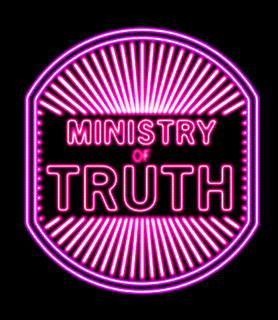The following censorship instructions, issued to the media by government authorities, have been leaked and distributed online. The name of the issuing body has been omitted to protect the source.
Don’t hype news related to the article “Accused of Prostitution, ‘Guangzhou Uncle Ou’ Detained in Changsha.” (March 30, 2015) [Chinese]
Guangzhou-based anti-corruption activist Ou Shaokun, known for his work outing officials’ improper personal use of government vehicles, was detained in Changsha, Hunan last week for allegedly hiring a prostitute. The South China Morning Post reports that Ou’s detention came just after he posted photos of an official SUV from Guangzhou on unofficial business in Hunan:
The incident happened within hours of Ou uploading photos on his microblog of a Toyota SUV, one of two vehicles that he said were Guangzhou government cars being used for personal business in Hunan.
Ou, who has more than 104,000 followers on his microblog, claimed that the Toyota was owned by Guangzhou police and he spotted it in the Mao Zedong memorial park in Mao’s hometown of Shaoshan.
“[I] have been monitoring abuses of official vehicles for 10 years, but why do such abuses continue?” Ou said on Thursday afternoon. [Source]
Updated at 11:30 a.m. PST (04/01/2015): The New York Times’ Patrick Boehler and Jess Macy Yu outline Ou’s work campaigning against corruption over the past decade, note that his supporters suspect his detention and the unusual public release of his identity could be an act of retaliation by officials:
“This clearly is retribution for his longtime monitoring of corruption as a citizen,” said Wang Aizhong, a rights advocate in Guangzhou who has known Mr. Ou for several years. “He is very much respected and a popular figure among Guangzhou rights defenders.”
[…] Mr. Ou’s detention notice included his full name, age, personal identification number and home address. Police detention notices are usually delivered only to detainees, and are not normally released to the public. It was unclear who had leaked the notice online.
[…] The actions by the local authorities lead one to “assume that this was an attempt by the authorities to smear the name of a rights defender, thereby further eroding the government’s credibility,” Mr. Wang [Cailiang] [rights lawyer] wrote. […] [Source]
 Since directives are sometimes communicated orally to journalists and editors, who then leak them online, the wording published here may not be exact. The date given may indicate when the directive was leaked, rather than when it was issued. CDT does its utmost to verify dates and wording, but also takes precautions to protect the source.
Since directives are sometimes communicated orally to journalists and editors, who then leak them online, the wording published here may not be exact. The date given may indicate when the directive was leaked, rather than when it was issued. CDT does its utmost to verify dates and wording, but also takes precautions to protect the source.








